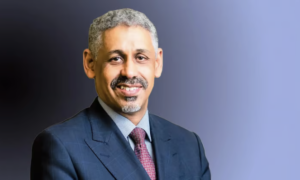BY IBUKUN EMIOLA
On the surface, it is another exam season in Nigeria — the stress, the supervision, the silence in classrooms.
But beneath that surface lies a digital underworld of leaked questions, fintech fuelled payments, and WhatsApp groups selling success to the highest bidder.
Investigations show that there are WhatsApp groups where National Examinations Council (NECO), West African Examinations Council (WAEC), and even state common entrance and joint examinations questions for public schools are traded like market goods.
Questions and answers are sold for as low as N500 to N3,500 via mobile money apps.
These groups serve candidates across multiple states, customised to local exam codes.
These examinations question get leaked the evening before the day of the examination and not hours to the examination.
Some of these sites do give always and encourage members on the platform to share the link with others.
The National Examinations Council (NECO) has found itself at the centre of this fight, as it tries to plug the growing leak in the credibility of public examinations.
To combat this menace, NECO’s Registrar and Chief Executive, Prof. Dantani Wushishi, set up an Examination Intelligence Committee.
This committee, according to NECO’s Annual Posting Calendar Implementation Committee (APCIC) Chairman, Mr Ahmed Bagwai, has been active from the onset of the SSCE internal exam.
He said the committee has been engaging with key national agencies including the Independent Corrupt Practices and Other Related Offences Commission (ICPC), the Economic and Financial Crimes Commission (EFCC) and the Nigerian Communications Commission (NCC).
However, these efforts are being outpaced by digital fraud.
According to Bagwai, live question papers are released two to three hours before the exam, not days like before.
“Our investigations point to some compromised supervisory points — the so-called non-daily custodians.
“NECO has drafted court documents to block identified telephone lines used in spreading leaked questions.
“A motion exparte is ready for filing at the Suleja Division of the Niger State High Court.”
Bagwai said that if telecom providers failed to act on the order, NECO would escalate to the NCC.
“Still, shutting down leak channels remains an uphill battle,” Bagwai said.
Some of the teachers who spoke on the condition of anonymity lamented the dire situation the Nigerian education is in and the grave consequences on the nation.
“We are not just dealing with a leak — this is an organised operation,” said a secondary school teacher in Ibadan.
Another teacher said “Supervisors collect bribes, and parents are complicit.
“Some schools are even urging students to register in so-called ‘special centres’ where cheating is institutionalised.”
A call for a return to school-based entrance exams is gaining support among educators who believe centralisation is feeding the fraud. Nonetheless, the problem is not just analogue — it is digital too.
Mr Fatai Owoseni, a retired Commissioner of Police and Consultant to JAMB on Security Matters, warned about “face blending”, a new method of cheating.
According to him, this is where impersonators digitally merge their facial features with a candidate’s biometric image to beat identity verification during computer-based exams.
“Exam malpractice has become an industry in Nigeria. “The demands for paper qualifications, the glorification of certificates, and digital anonymity have all made it easier.”
He added that JAMB, though far ahead in digital infrastructure, still contended with impersonation and hacking attempts.
“That is why NECO and WAEC must collaborate, not compete; learn from what is working.” Owoseni, who is also the Special Adviser on Security Matter to Gov. Seyi Makinde, also called for a rethinking of Nigeria’s educational priorities.
“Not everyone needs a university degree.
“We must respect vocational qualifications and create an ecosystem where alternative skills matter.”
NECO believes public support is key. “We are calling on the media, the public and relevant agencies to help restore credibility















